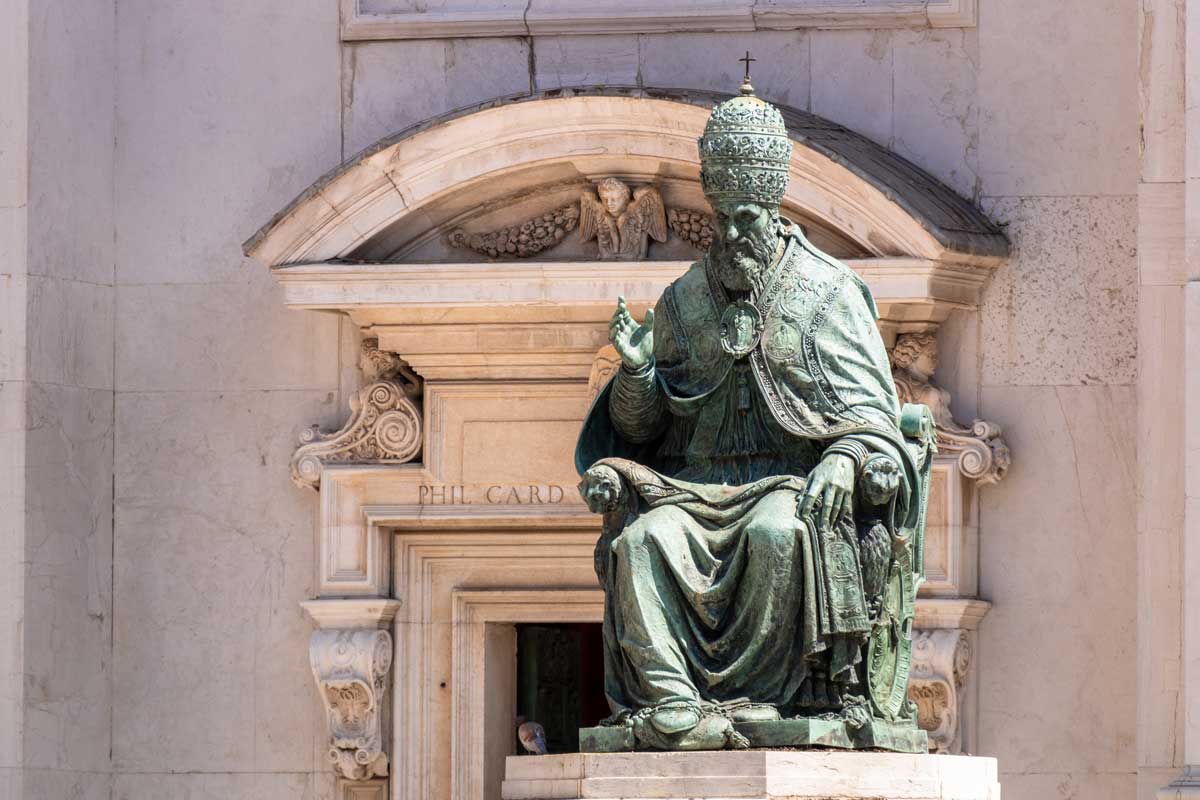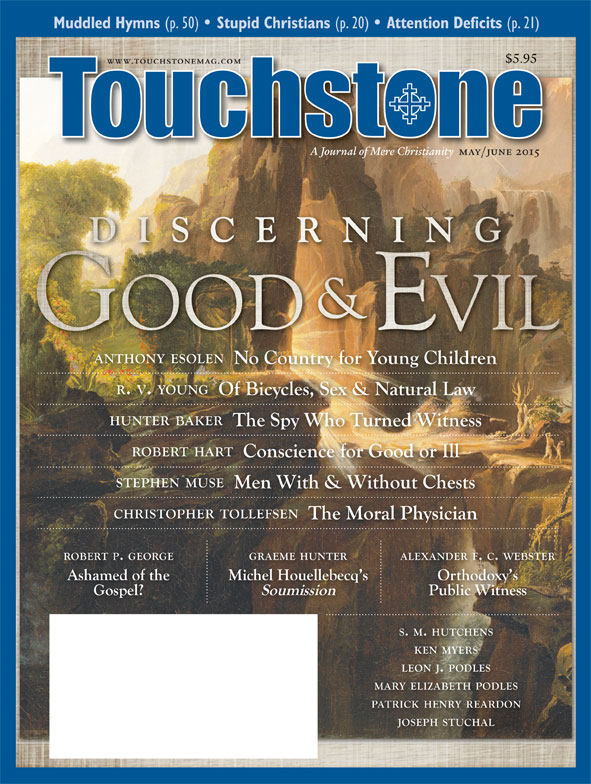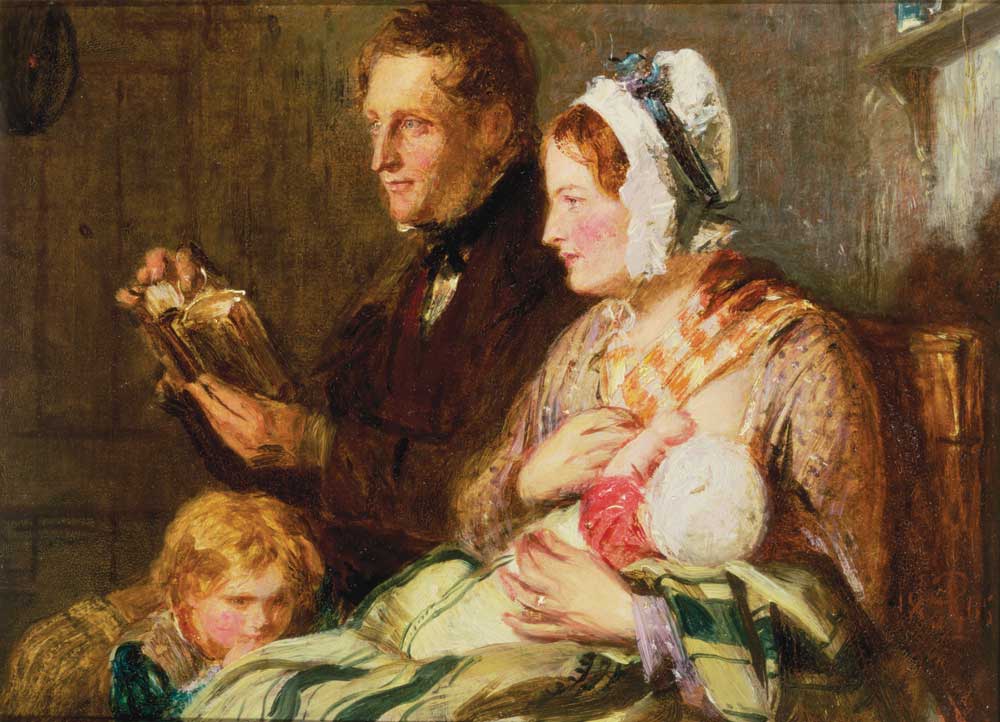Introduction
At some point, every Christian stumbles across someone who thinks he's come up with a doozy of an anti-Christian argument that always begins, "Southern slave holders used the Bible to justify slavery, so . . ."
I recommend responding with an eye roll, but if you just can't help yourself, you might say:
"Oh it was much worse than that! Klansman taught that hatred of the Jews was a necessary component of being a good Christian, ignoring the fact that Jesus, his disciples, and nearly all of his followers in and around Jerusalem were Jews. How could they blind themselves to this obvious contradiction? Easy. That kind of moral relativism happens every time a group of people attempt to separate religion from morality."
As the comedians like to say, "Did you see what I did there?" Well it wasn't me really, but Robert Hart in this 2015 article for Touchstone, Deep Convictions.
—Douglas Johnson, Executive Editor
(read more Editor's Picks)
Deep Convictions by Robert Hart
View
Deep Convictions
Robert Hart on the Formation of Conscience for Good or Ill
On Facebook recently, I saw an interesting survey called, "How pro-life are you? Take the quiz." Generally, I ignore those quizzes, unless something looks particularly interesting to me. Inasmuch as I am completely and actively pro-life, I opened the link and began to read the questions.
The first question was impossible for me to answer. It listed four reasons for the quiz taker—in this case, me—to be pro-life: (1) for religious reasons, (2) for moral reasons, (3) for legal reasons, or (4) for reasons having to do with personal experience. There were no other options, nothing like "All of the above" or any possibility of selecting more than one answer. I had to select one of the four. But I could not choose only one of the answers provided.
One might ask me, "But as a priest, shouldn't you say that your reason for being pro-life is religious?" I could say that it is a reason, but to choose either religious conviction or moral conviction, as if they can be separated in the life of any Christian who is a true believer, should be impossible. To choose between them at all is, at best, misleading. Moral convictions are rooted deep down in the conscience of a human being, and so is faith.
The Christian's approach to all issues of morality must spring from something deeper than only the written letter of statutes and regulations or commandments, even though they are from the Bible. Of course, his position must agree with the commandments and not deviate from them. But a person has the ability to obey a set of rules and regulations without having a properly formed conscience. And because that is so, many individuals can, quite honestly, choose between moral reasons and religious reasons for taking a completely sincere stand for the pro-life cause, and, for that matter, anything.
But there is a danger in responding strictly to one's conscience, unless it has been developed reasonably in accord with basic Christian teaching. Part of the New Covenant is to have the law of God written on the human heart by the Holy Spirit (Jer. 31:31f). That is not the same thing as being merely subjective in one's approach.
Formed by the Word & Dependent on Grace
As a member of the Anglican Catholic Church, I am well acquainted with our founding document, The Affirmation of St. Louis, composed in 1977 at the St. Louis, Missouri Congress, which was called to address crises within the Episcopal Church and the Anglican Church in Canada. Because some of the crises being addressed concerned moral issues (including the sin of abortion), portions of the Affirmation are not just of particular importance to Anglicans, but have an application that is shared among all those who adhere to ecumenical orthodoxy. One of those portions concerns the relationship of Scripture and its proper teaching to the individual conscience of a Christian:
The conscience, as the inherent knowledge of right and wrong, cannot stand alone as a sovereign arbiter of morals. Every Christian is obligated to form his conscience by the Divine Moral Law and the Mind of Christ as revealed in Holy Scriptures, and by the teaching and Tradition of the Church. We hold that when the Christian conscience is thus properly informed and ruled, it must affirm the following moral principles: . . .
The Affirmation then lists the basic moral positions that all of us, as mere Christians, should agree upon. (One of them is "The Sanctity of Human life: Every human being, from the time of his conception, is a creature and child of God, made in His image and likeness, an infinitely precious soul; and that the unjustifiable or inexcusable taking of life is always sinful.")
So, in no way am I saying that a person ought to follow his heart, or "evolve," or any of that trendy sophistry. What I am saying is that the conscience of a Christian must be formed by the Word of God, and that such a conscience is dependent on the grace of God to make it alive. We are not Muslims, and the Bible is not the Koran. The word is not merely external to our consciences; rather, it speaks directly to the human conscience by the Holy Spirit. Therefore, it is the grace of God at work in the human heart.
Continue Reading
Robert Hart is rector of St. Benedict's Anglican Catholic Church in Chapel Hill, North Carolina (Anglican Catholic Church Original Province). He also contributes regularly to the blog The Continuum. He is a contributing editor of Touchstone.
Order
Print/Online Subscription

Get six issues (one year) of Touchstone PLUS
full online access including pdf downloads for only $39.95. That's only $3.34 per month!
Order
Online Only
Subscription

Get a one-year full-access subscription to the Touchstone
online archives for only $19.95. That's only $1.66 per month!
Order Touchstone subscriptions in bulk and save $10 per sub! Each subscription includes 6 issues of Touchstone plus full online access to touchstonemag.com—including archives, videos, and pdf downloads of recent issues for only $29.95 each! Great for churches or study groups.
Transactions will be processed on a secure server.
more on culture from the online archives

18.2—March 2005
Long Shadows of Eden
On Conservatism as Vexation, Vanity & Near Impossibility by Graeme Hunter

20.8—October 2007
Aliens in Zion
on Why I Can’t Be Just Another Earthman by Louis Markos

31.2—March/April 2018
Millennial Mission
The Transmission of Christianity Is Not a New Task by Nathanael Devlin
more from the online archives

32.6—November/December 2019
Reformation Redux?
on Taking Heed of the Parallels Between the Crises of Yesterday & Today by Korey D. Maas
calling all readers
Please Donate
"There are magazines worth reading but few worth saving . . . Touchstone is just such a magazine."
—Alice von Hildebrand
"Here we do not concede one square millimeter of territory to falsehood, folly, contemporary sentimentality, or fashion. We speak the truth, and let God be our judge. . . . Touchstone is the one committedly Christian conservative journal."
—Anthony Esolen, Touchstone senior editor
Support Touchstone
00















